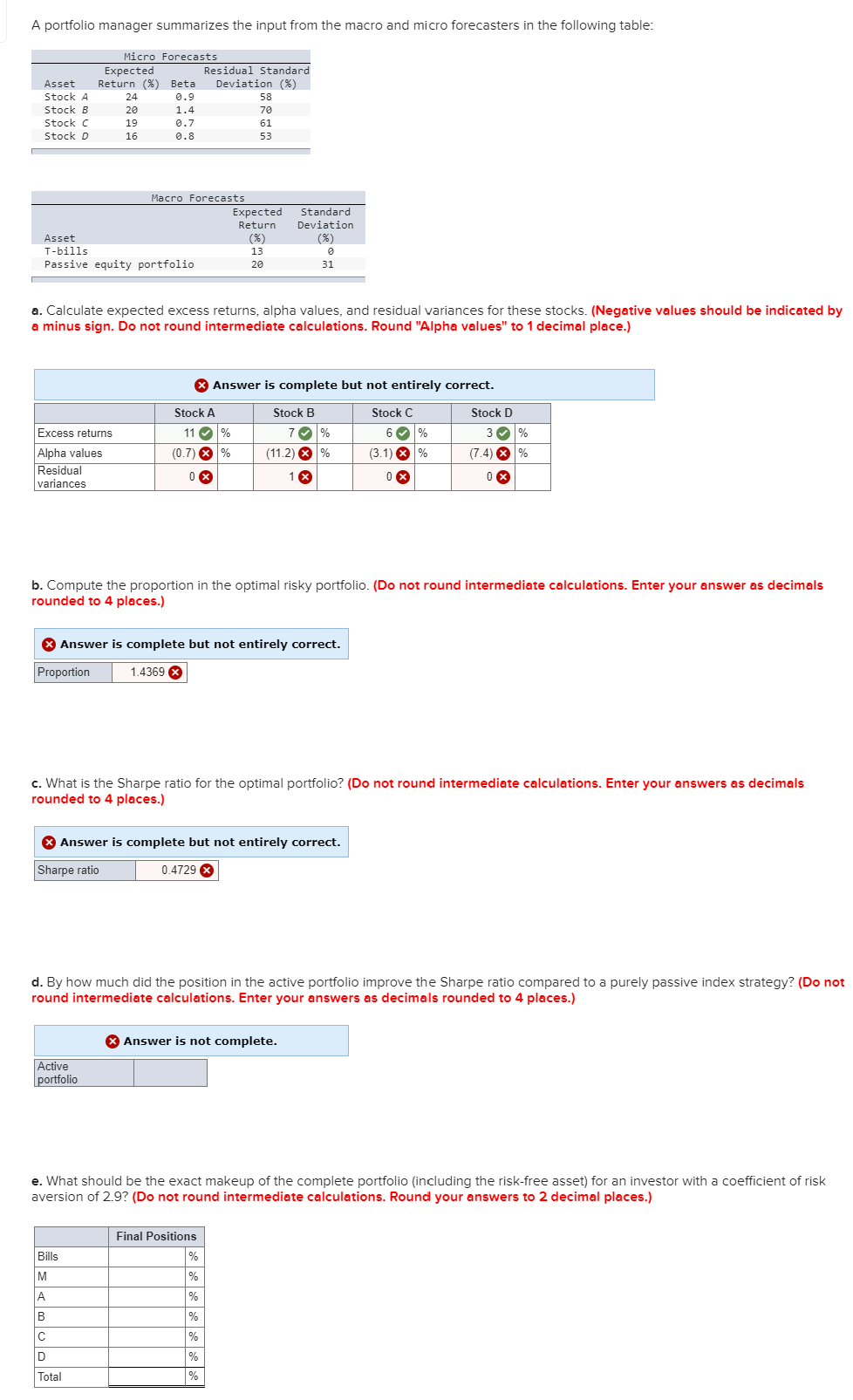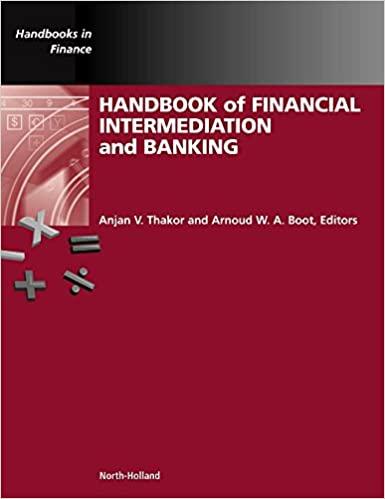I just need the problems for D & E please, use excel to get to the answers.

A portfolio manager summarizes the input from the macro and micro forecasters in the following table: Asset Stock A Stock B Stock C Stock D Micro Forecasts Expected Residual Standard Return (%) Beta Deviation (%) 24 0.9 1.4 0.7 16 0.8 20 19 Standard Deviation Macro Forecasts Expected Return Asset T-bills 13 Passive equity portfolio 20 31 a. Calculate expected excess returns, alpha values, and residual variances for these stocks. (Negative values should be indicated by a minus sign. Do not round intermediate calculations. Round "Alpha values" to 1 decimal place.) Excess returns Alpha values Residual variances x Answer is complete but not entirely correct. Stock A Stock B Stock C Stock D 11 % 7 % 6 % 3 (0.7) % % (11.2) % (3.1) % (7.4 1 0 0 % % 0 % b. Compute the proportion in the optimal risky portfolio. (Do not round intermediate calculations. Enter your answer as decimals rounded to 4 places.) & Answer is complete but not entirely correct. Proportion 1.4369 c. What is the Sharpe ratio for the optimal portfolio? (Do not round intermediate calculations. Enter your answers as decimals rounded to 4 places.) Answer is complete but not entirely correct. Sharpe ratio 0.4729 d. By how much did the position in the active portfolio improve the Sharpe ratio compared to a purely passive index strategy? (Do not round intermediate calculations. Enter your answers as decimals rounded to 4 places.) Answer is not complete. Active portfolio e. What should be the exact makeup of the complete portfolio (including the risk-free asset) for an investor with a coefficient of risk aversion of 2.9? (Do not round intermediate calculations. Round your answers to 2 decimal places.) Final Positions Bills Total A portfolio manager summarizes the input from the macro and micro forecasters in the following table: Asset Stock A Stock B Stock C Stock D Micro Forecasts Expected Residual Standard Return (%) Beta Deviation (%) 24 0.9 1.4 0.7 16 0.8 20 19 Standard Deviation Macro Forecasts Expected Return Asset T-bills 13 Passive equity portfolio 20 31 a. Calculate expected excess returns, alpha values, and residual variances for these stocks. (Negative values should be indicated by a minus sign. Do not round intermediate calculations. Round "Alpha values" to 1 decimal place.) Excess returns Alpha values Residual variances x Answer is complete but not entirely correct. Stock A Stock B Stock C Stock D 11 % 7 % 6 % 3 (0.7) % % (11.2) % (3.1) % (7.4 1 0 0 % % 0 % b. Compute the proportion in the optimal risky portfolio. (Do not round intermediate calculations. Enter your answer as decimals rounded to 4 places.) & Answer is complete but not entirely correct. Proportion 1.4369 c. What is the Sharpe ratio for the optimal portfolio? (Do not round intermediate calculations. Enter your answers as decimals rounded to 4 places.) Answer is complete but not entirely correct. Sharpe ratio 0.4729 d. By how much did the position in the active portfolio improve the Sharpe ratio compared to a purely passive index strategy? (Do not round intermediate calculations. Enter your answers as decimals rounded to 4 places.) Answer is not complete. Active portfolio e. What should be the exact makeup of the complete portfolio (including the risk-free asset) for an investor with a coefficient of risk aversion of 2.9? (Do not round intermediate calculations. Round your answers to 2 decimal places.) Final Positions Bills Total







